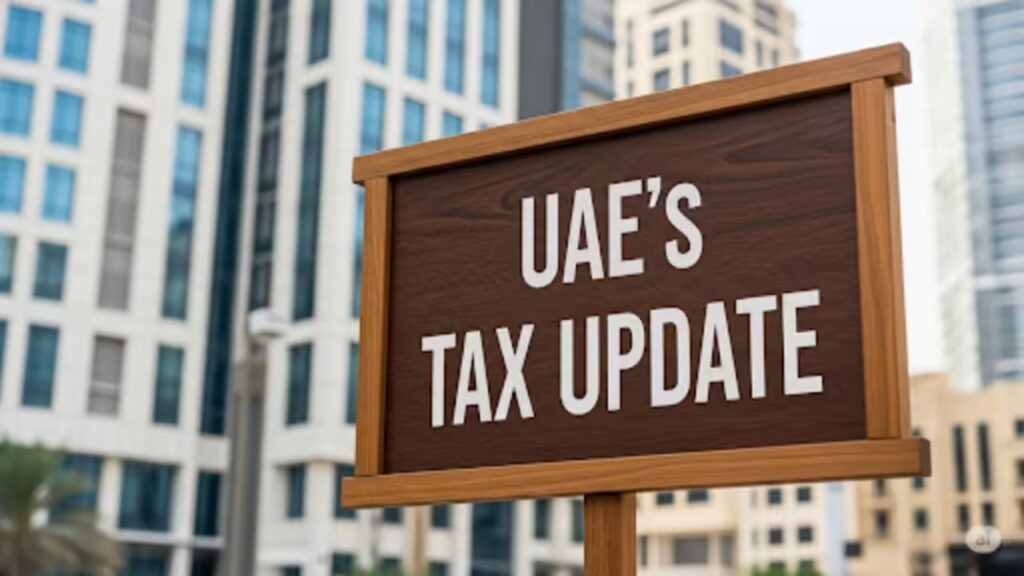UAE real estate tax rules explained have become more important for both investors and businesses with the recent changes in corporate taxation. The UAE has traditionally been a tax-friendly country for real estate investors, with no property tax, no capital gains tax, and no rental income tax for individuals. However, starting 2025, there are new rules that affect businesses, corporate investors, and some non-resident investors. This article provides a detailed guide to UAE real estate tax rules, helping investors understand what they need to know.
Corporate Tax on Real Estate Income
From 2025, the UAE has introduced a 9% corporate tax on net profits exceeding AED 375,000. This applies to all businesses, including those in the real estate sector, whether they are UAE mainland companies, free zone companies, or foreign entities managed and controlled from the UAE.
Key Points
- Taxable Income: Corporate tax applies to income earned from owning or renting out real estate, including residential and commercial properties.
- Exemptions: Certain exemptions exist, such as income earned from qualifying real estate investment activities.
- Depreciation Allowance: Businesses can apply a 4% annual depreciation on investment properties held at fair value.
These changes mean that real estate companies and property investors operating through business entities will need to carefully account for taxable income and consider strategies to reduce their corporate tax burden.

Real Estate Investment for Individuals
Individuals investing in real estate are generally considered Resident Persons in the UAE if they conduct business or business-related activities in the country. However, corporate tax only applies if the total turnover from business activities exceeds AED 1 million in a year.
Exclusions from Corporate Tax
Income earned from personal investments, including real estate, is not subject to corporate tax if it does not involve business activities or require a license. This means that individuals buying properties for personal investment or rental income will not face corporate tax unless they operate a real estate business.

Real Estate Investment Trusts (REITs)

REITs have become a popular way for investors to access real estate without directly owning property. UAE real estate tax rules explained also cover REITs, as investors in qualifying REITs may be exempt from corporate tax if certain conditions are met.
Considerations for Investors
- Qualification Criteria: REITs must meet specific requirements set by the authorities to qualify for tax exemption.
- Investor Obligations: Investors need to ensure compliance with regulatory guidelines to maintain their tax-exempt status.
These rules make REITs an attractive option for passive real estate investors looking to minimize their tax liability.
Value Added Tax on Real Estate Transactions
The UAE applies a 5% Value Added Tax (VAT) on the sale or lease of commercial properties. This includes offices, warehouses, retail units, and other non-residential properties.
Key Points
- Applicability: VAT is charged at the time of purchase or lease of commercial property.
- Exemptions: Residential properties and some qualifying real estate investment activities may be exempt from VAT.
Investors and tenants must consider VAT costs when budgeting for property investments or leasing agreements.
No Capital Gains Tax for Individuals
One of the most attractive aspects of the UAE real estate market is that individuals are not subject to capital gains tax when selling properties.
For example, if an individual buys a villa for AED 2 million and sells it for AED 3 million, the AED 1 million profit is not taxed. This encourages long-term investment and capital growth in the property market.
Depreciation on Investment Properties
The UAE allows businesses to apply a 4% annual depreciation on investment properties held at fair value. This is effective from January 1, 2025. Depreciation is useful for reducing taxable income and supporting businesses in capital-intensive sectors such as real estate.
Tax Nexus Rules for Non-Resident Investors

The UAE has issued new guidance to clarify when foreign and non-resident investors are considered to have a taxable presence in the country. These rules aim to prevent tax avoidance and align the UAE with international tax standards.
Non-residents who actively manage or control real estate investments from the UAE may need to comply with corporate tax obligations. It is important for foreign investors to understand these rules before investing.
Other Property-Related Costs
While there is no annual property tax in the UAE, property owners should be aware of other costs, including:
- Transfer Fees: A 4% fee paid to the Dubai Land Department when a property is transferred.
- Registration Fees: Costs associated with registering property ownership.
- Service Charges: Ongoing fees for property maintenance and management.
These costs should be considered alongside any potential tax liabilities when planning real estate investments.
Practical Tips for Investors
- Know Your Corporate Status: Businesses must check if their real estate income exceeds the corporate tax threshold.
- Check REIT Qualifications: Investors in REITs should ensure their fund qualifies for tax exemptions.
- Consider VAT Costs: When leasing or purchasing commercial property, include VAT in financial planning.
- Leverage Depreciation: Businesses should claim depreciation to reduce taxable income.
- Stay Updated: UAE real estate tax rules may evolve, so regular consultation with tax professionals is recommended.
By following these tips, investors can maximize returns while remaining compliant with UAE tax laws.
Conclusion
UAE real estate tax rules explained highlight that while the country remains attractive for investors, businesses need to account for corporate tax, VAT, and depreciation allowances. Individuals enjoy continued tax advantages, including no capital gains tax and exemptions for personal investment income.
The 2025 updates aim to balance international tax compliance with maintaining the UAE’s appeal as a tax-friendly destination for real estate investors. Staying informed and planning carefully can help investors and businesses optimize returns and ensure compliance with all regulations.
Understanding these rules is critical for anyone involved in the UAE property market, whether buying, selling, or investing through corporate or personal channels. With proper planning, the UAE continues to offer one of the most favorable real estate environments in the world.
Do follow UAE Stories on Instagram
Read Next – UAE Renewable Energy: Leading the World in Sustainability












